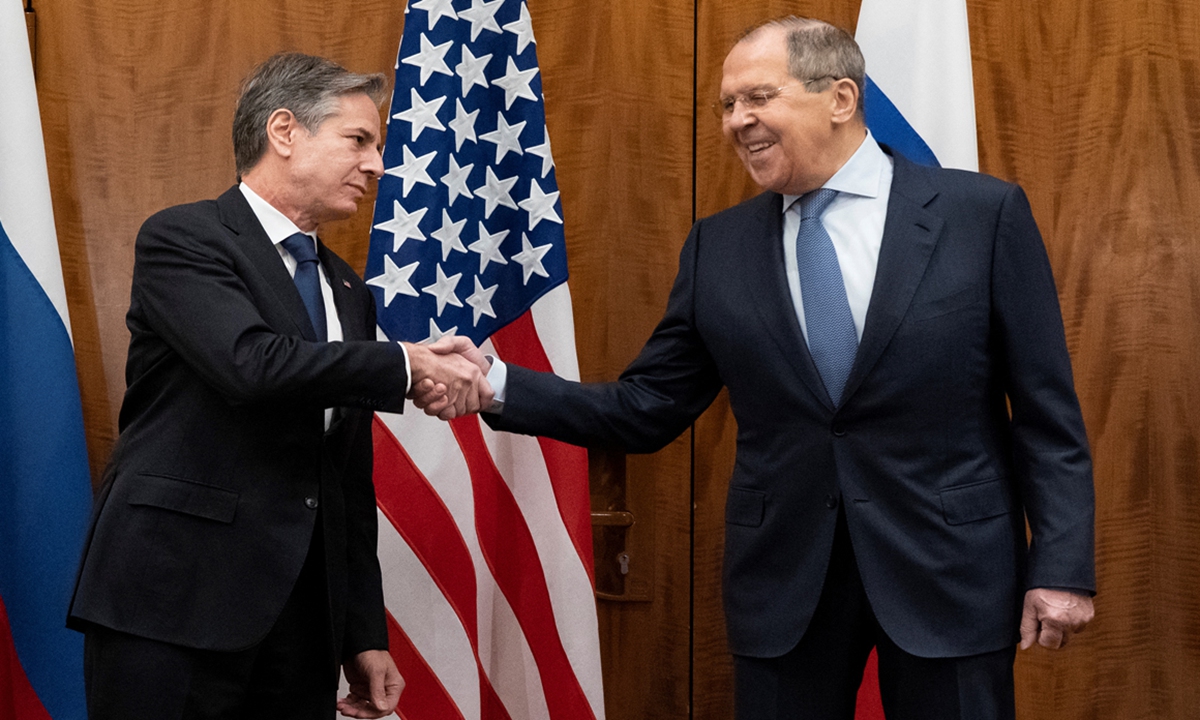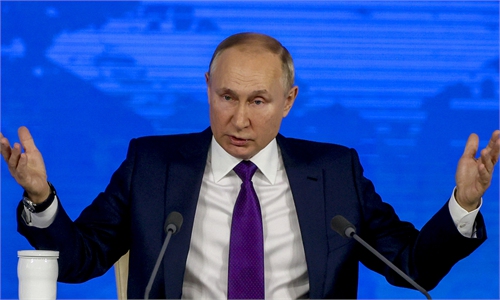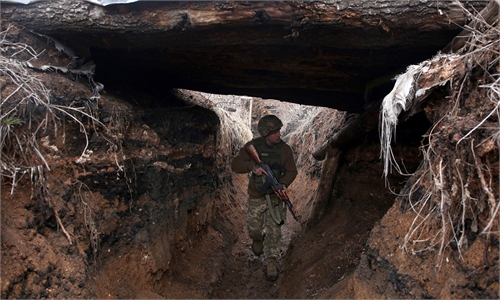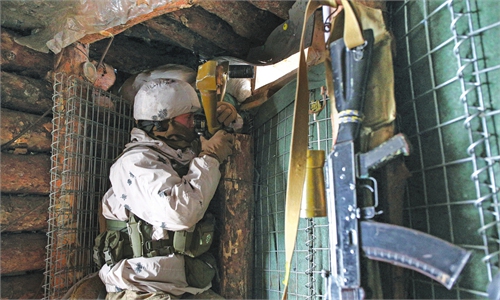
US Secretary of State Antony Blinken (L) and Russian Foreign Minister Sergey Lavrov shake hands before their meeting on January 21, 2022, in Geneva, Switzerland. Photo: AFP
The escalation of the crisis situation around Ukraine has been gaining momentum in recent days. According to news agencies, the US is ready to transfer up to 8,500 military personnel to Europe in a short time if necessary, as the Pentagon said before. NATO on Monday announced the transfer of ships and aircraft to Eastern Europe: Bulgaria, Romania and Lithuania. Spain, the Netherlands, and Denmark have announced their readiness to send additional forces to Eastern Europe.On Monday morning, it became known that the United States, and then the United Kingdom, Australia and Germany began to evacuate some diplomats from Ukraine, as well as their family members. This was explained by the "growing threat from Russia." The Japanese government is also studying the possibility of evacuating its citizens, including embassy staff.
Donbass has become noticeably more complicated again. Eduard Basurin, deputy head of the People's Militia Department of the self-proclaimed Donetsk People's Republic, said that the Ukrainian army on the line of confrontation in Donbass is preparing for an offensive. At the same time, European and American officials told The Washington Post about "unusual movements of equipment and military personnel in the western regions of Russia." The Kremlin said that the movement of Russian troops on the territory of the country is exclusively a matter of Russia. Presidential press secretary Dmitry Peskov stated that "Ukraine is most likely seeking another attempt to start a forceful solution to its own problem" and that "those who brought their armed forces from overseas are talking about unusual military activity."
The aggravation in relations between Russia and the West, however, did not stop the negotiation process between the two sides. Russia is negotiating with the United States and NATO on security guarantees. Among the main issues discussed is the settlement of the situation around Ukraine. Negotiations are held at different levels both in person and over the phone.
The current situation around Ukraine is a consequence of a complex positional game being played by the West which Russia was forced to join, forming its own response to emerging external challenges. The West often reproaches Russia with geopolitical revisionism - but at the same time does not explain its reasoning. For example, when did such "revisionism" begin - from 2014, two decades earlier, after the collapse of the USSR? NATO, despite Moscow's repeated appeals, refuses to discuss security guarantees for Moscow with Russia - which creates a tense and suspended situation that threatens to further aggravate the confrontation. NATO functionaries periodically make political statements that preserve a very tense situation - that is, they continue a set of impromptu actions that cannot be considered a manifestation of a reasonable policy. In turn, Ukraine, represented by its political leaders, manifests itself as a state that has lost a considerable part of its political subjectivity as a result of the crises it has experienced, and, due to the unilateral bet on the West, is unable to conduct balanced and non-confrontational politics.
The thesis about Russia's impending attack on Ukraine is a political and propaganda construct of the West, which is actively supported by the Ukrainian authorities in order to demonstrate their loyalty to Western countries. Russia is not interested in conducting military operations in Ukraine territory or engaging in a direct military confrontation with Western countries, but cannot allow a humanitarian catastrophe on the territory of Donbass, which will inevitably arise as a result of the intensification of military activity of the Ukrainian armed forces (with the military-technical support of NATO countries) against the two unrecognized republics. Russia is fundamentally ready to negotiate with the West on the principles of interaction and de-escalation of the situation around Ukraine - but it cannot deviate from the fundamental requirements, including the rejection of NATO expansion in the post-Soviet space, the preservation of the neutral status of Ukraine and Georgia, and the inadmissibility of the military presence of the North Atlantic Bloc countries on the territory of these states. The question is the readiness of Western countries and NATO to agree.
At the same time, Russia has demonstrated that in response to unilateral actions and decisions of Western countries, it is ready to act quite harshly - but this rigidity will be strictly proportional to the actions of the opposite side. The current crisis around Ukraine and Donbass has once again shown how fragile the world has become in a situation of weakening mutual trust between states and the progressive weakening of international institutions. At the same time, the position of the leadership of a number of EU countries, as well as the rejection of a confrontational style in foreign policy by representatives of a large number of states, among which China stands out, allows us to maintain hope for a prosperous and peaceful settlement of the current situation.
The author is a professor at the Siberian Institute of Management in Novosibirsk of Russia. opinion@globaltimes.com.cn



